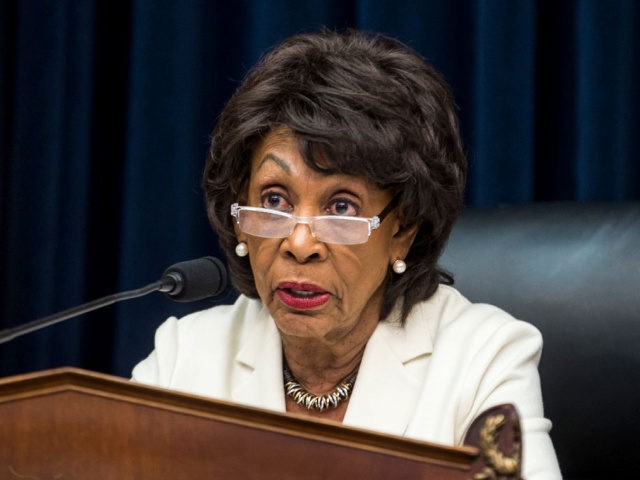
It was a disappointing day for anyone hoping Democrat House oversight of the banking industry might shed some light onto the risks and operations of America’s too-big-to-fail banks.
The heads of seven of the largest U.S. banks came before the House Financial Services Committee Wednesday after weeks of preparations for a battle with House Democrats. But much of the questioning fell flat, with Democrats’ barbs largely missing the mark or revealing a surprising lack of knowledge of the business of the big banks.
As a case in point, Financial Services Committee Chairwoman Maxine Waters pressed the executives on the burgeoning crisis of student loans. Total student-loan debt now exceeds $1.5 trillion, making it the second largest category of consumer debt after home loans. Over a million borrowers default on student loans each year. If current default trends continue, close to 40 percent of borrowers are expected to default on their student loans by 2023, according to a Brookings Institute study.
“What are you guys doing to help us with this student loan debt? Who would like to answer first? Mr. Moynihan, big bank,” Waters asked, directing her question first to Bank of America CEO Brian Moynihan.
“We stopped making student loans in 2007 or so,” Moynihan said.
“Oh, so you don’t do it anymore. Mr. Corbat?” Waters said, turning her attention to Citigroup CEO Michael Corbat.
“We exited student lending in 2009,” Corbat said.
It fell to JPMorgan Chase CEO Jamie Dimon to break the news to Waters that the big banks are no longer in the business of making student loans. The federal government forced commercial banks out of the student loan business back in 2010. The Department of Education now makes almost all student loans directly.
“When the government took over student lending in 2010 or so, we stopped doing all student lending,” Dimon said.
The legislation pushing banks out of student lending was a centerpiece of President Obama’s education agenda. It was celebrated as a major legislative victory and helped create room in the budget for Obamacare-related spending. Previously, the government made about one-third of student loans and backed the rest through a guarantee program that dated back to 1965.
At the time it was passed by the Democrat House majority, the Congressional Budget Office projected the bill would save taxpayers about $61 billion over 10 years. Those projections have turned out to be too optimistic. A report released by the Department of Education’s inspector general last year estimated the government would make $5 billion on student loans extended in the fiscal year through September 30, 2015, down from $25 billion in profits projected just three years earlier. Escalating defaults likely mean that the program is now losing money.
That the chairwoman of the House Financial Services Committee would not be aware of the lack of a role for banks in student lending came as a surprise to many watching the hearing, especially since the committee’s staff had extensively prepared for the panel with bank executives.
This gaffe took away some of the sting from Waters’ accusation that the big banks were “simply too big to manage their own operations.” That charge would likely have had more salience if the chairwoman had shown more familiarity with what those operations actually were.









